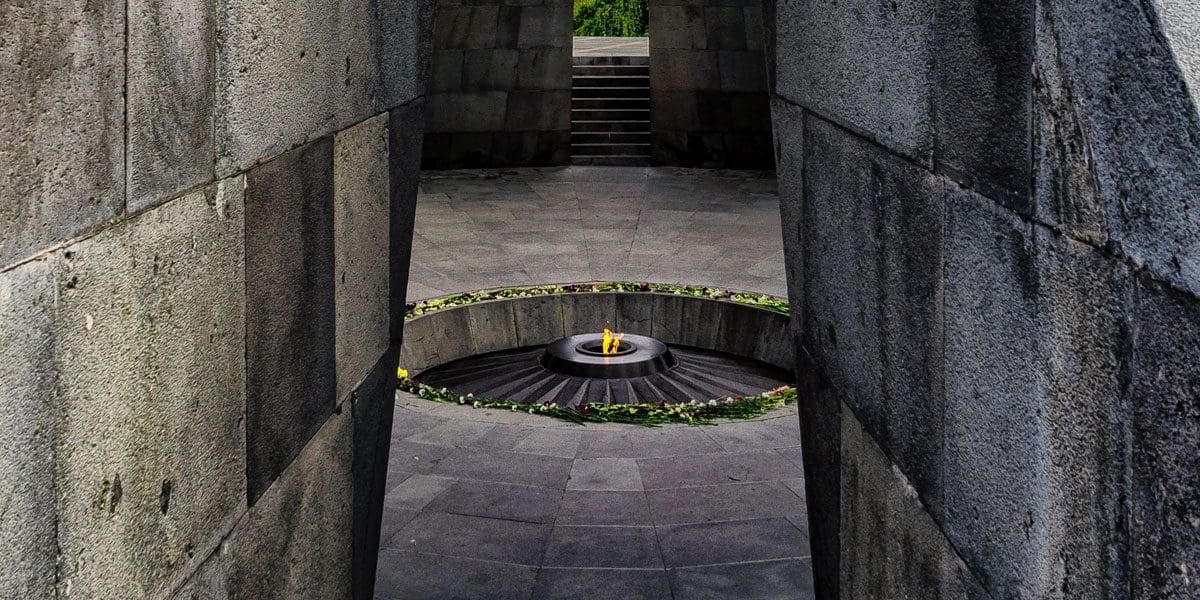If you’re like me, you’re probably getting a little weary of sheltering in place. In the past few weeks, I have read more books than in the past several years, have plowed through many a Netflix mini-series, and look forward to taking my trash out because it means a chance to go outside and perhaps interact with a neighbor (socially distant, of course). Though my sheltering in place is a small inconvenience compared to those truly suffering from COVID-19, I fondly remember the days when there were fewer restrictions on my movement and activities. As we continue though the month of May, we now uniquely celebrate and remember a holiday: Memorial Day.
Each May, Americans set aside the 25th as a day of remembrance for the servicemembers who have given up their lives in defense of our collective freedoms. A brief stroll through your neighborhood on Memorial Day may show that for some, the day is simply the official start of summer, a day for backyard barbeques, cornhole, and family gatherings. Others practice it as a blithe patriotic celebration of American civil religion, meaning little more than parades, a few fireworks, and hollow expressions of tribute. Yet for many, Memorial Day is something else entirely. It is a day of deeply personal remembrance of those who have gone before and no longer walk this earth, dead in defense of their countrymen, giving up their lives for the benefit of others (John 15:13).
Though Christians often wrestle with how to integrate secular holidays and days of remembrance with their faith, Memorial Day is an opportunity to reflect deeply on God’s faithfulness in the past.
Historical Remembrance is Fundamental to Christian Identity
In my experience, reflecting on historical events is not most people’s favorite pastime. When I tell people that I am studying to be a high school history teacher, I often get responses ranging from brief cringes to a long-winded tirade about their horrific experience with Ms. so-and-so back in 7th grade. I don’t blame them. As Americans, we live in what author Christopher Hitchens poignantly called a “present-tense culture.”[1] A famous scene from Ferris Bueller’s Day Off comes to mind, in which the history teacher drones on about the Hawley-Smoot Tariff of 1930, met only with blank stares and heads down on desks. This visual depicts the all-too-familiar habit of historical remembrance as little more than a meaningless and impersonal awareness of names and dates from the past, seemingly useless to us in the here and now.
The Bible calls the Christian believer to more than passive and vague reflection on the past. The Old Testament illustrates numerous examples of deliberate, physical acts of remembrance of God’s grace and provision. Before the angel of death visits Egypt in the tenth and final plague, Moses tells Israel that “this day shall be for you a memorial day, and you shall keep it as a feast to the Lord throughout your generations, as a statute forever” (Ex. 12:14). Similarly, Israel was called to “Bless the Lord, O my soul, and forget not all His benefits” (Ps. 103:2).
But they forgot. The book of Judges details Israel’s struggle with remembering the deeds of the Lord. They fell time and time again to the contemporary temptations of false gods and quick fixes: “And the people of Israel did not remember the Lord their God, who delivered them from the hand of all their enemies on every side” (Judg. 8:34). After the Lord delivered the Philistines into the hand of Israel hundreds of years later, Samuel raised up a stone and named it Ebenezer, for “till now the Lord has helped us” (1 Sam. 7:12). Though it stood as a permanent reminder of God’s goodness and faithfulness to his chosen people, they still forgot. Thus continued Israel’s cycle of forgetting and remembering, and forgetting again.
Just as the Israelites were called to do, God instructs us to “sing unto the Lord, and give thanks at the remembrance of his holiness” (Ps. 30:4). Scripture makes it clear that followers of the Most High God must remember his faithfulness. Part of our identity as Christians is that of a remembering people.
What are Christians to Remember?
Not unlike the Israelites, we are prone to forget God’s faithfulness today. It can be deceptively easy to live with a present-tense mindset, worried about the stresses and uncertainties that seem urgent in the here and now. I often find myself falling into this trap. In these days of quarantine and lockdown, I am prone to fret and worry about my own health and future, forgetting what God has done for me in the past. Especially in this time, the practice of historical remembrance facilitated by Memorial Day can help us to remember three important truths.
We remember the sacrifices of our fellow countrymen and women who have offered up their own lives in service of the United States. They have defended and perpetuated the freedoms that we cherish dearly. These sacrifices have been a means by which God has blessed Americans with a remarkable freedom to worship Him, and for this we should be immensely grateful.
We remember that we live in a nation that is not perfectly peaceful. Lest we be like the Pharisees and “neglect the weightier matters of the law: justice and mercy and faithfulness” (Matt. 23:23), we must remember the injustice that continues to exist and is perpetuated in the United States. We should then use this remembrance to propagate justice, mercy, and faithfulness to our neighbor.
Finally, we remember and celebrate the salvation that we have through the death and resurrection of Christ Jesus. 1 Peter 2:14 exhorts us to remember that “He himself bore our sins in his body on the tree, that we might die to sin and live to righteousness.” Brothers and sisters, we have a supernatural hope that is found in the cross, and we must never forget that Christ loves us enough to die for us!
God is glorified when we remember his faithfulness and grace in the past. This remembrance helps us see the ways in which He is working in the present. We were created to flourish when we look upon these things with gratitude, and Memorial Day is an opportune time to honor the Lord through remembrance.
—


